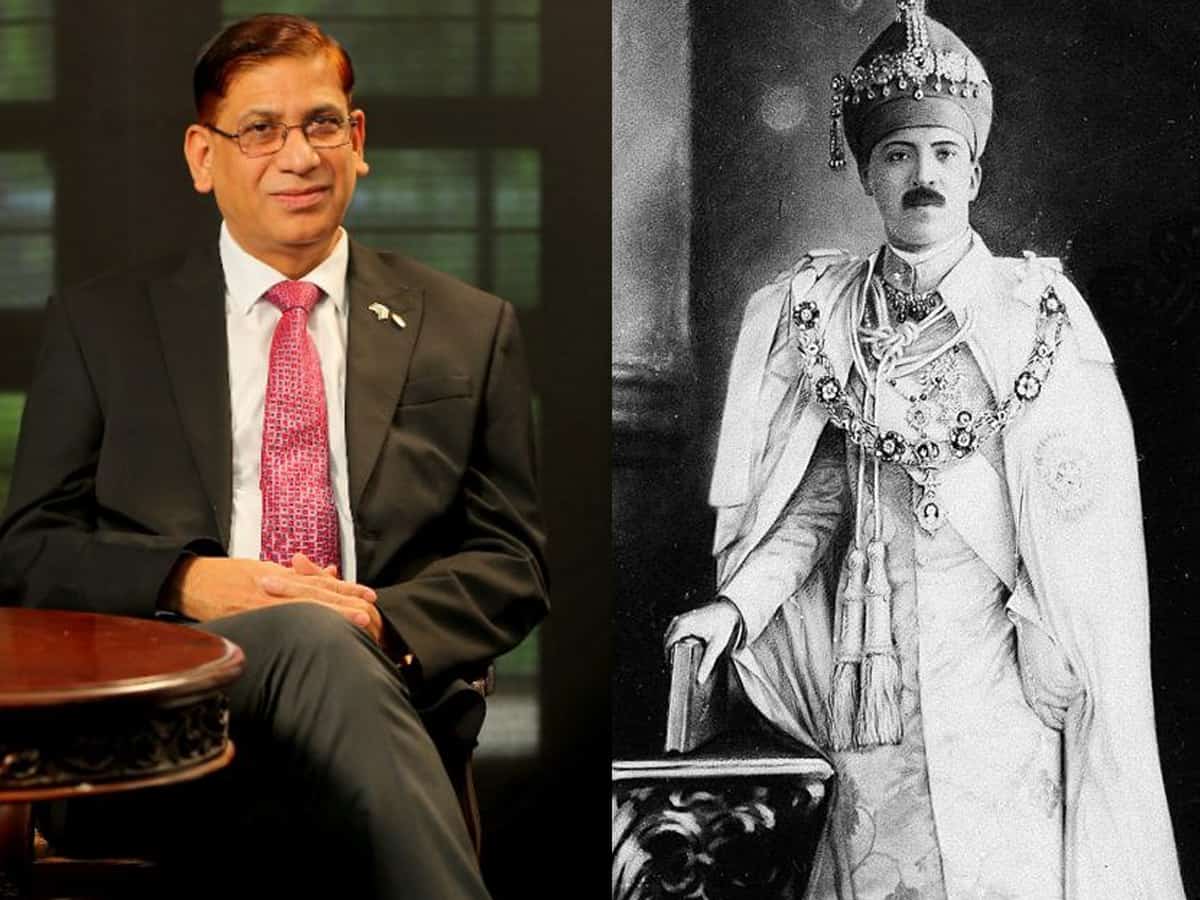
The Azad Memorial Lecture organised by the Maulana Azad National Urdu University on 11th November 2021, which India celebrates as the National Education Day, was not just enlightening, but it opened up debates on issues which are generally not discussed openly.
Prof. Faizan Mustafa, NALSAR University’s Vice-Chancellor, who was invited as the Chief Guest, while speaking about Maulana Abul Kalam Azad’s position on constitutionality and its impact on religious and cultural diversity in the Indian sub-continent highlighted in his lecture, issues of federalism and majoritarianism-minorities that were not just thought provoking but triggered a number of related ideas on erstwhile Hyderabad State in my mind.
Anyone familiar with Hyderabad State’s tumultuous history of 1947 and 1948 could not help but be reminded of the several issues involved in forming representative governments at the Centre in Delhi and in the Princely State of Hyderabad. His Exalted Highness, the Nizam, Mir Osman Ali Khan had signed a Stand Still Agreement with the Dominion of India represented by Lord Mountbatten, Governor-General of India on 29th November, 1947 for a period of one year. On 30th November 1947, the Nizam through a farman appealed to the people to maintain peace and refrain from communal conflict. He was engaged in the task of maintaining law and order and providing relief to hundreds of displaced people, yet the chorus for devising measures for the free expression of the will of the people was resonating loudly.
When India attained independence in 1947, the Nizam had chosen independence for Hyderabad State. Soon Hyderabad State in 1948 was heralding a new beginning by giving a call for the process of forming a government that envisaged the ultimate responsibility resting not with the Government or the officers in public life but with the ordinary men and women. Adult suffrage, as in the USA, became a starting point to elect a constitutionally responsible elected body in Hyderabad State. The Constituent Assembly would be the body that would make the new electoral rolls, and finalise the constituencies from where the candidates would be nominated for election. Accordingly, on 4th December 1948 by order of His Exalted Highness the Nizam, the old Hyderabad Legislative Assembly was dissolved. The HEH also issued a special farman asking all his officers and subjects in Hyderabad State to cooperate in this exercise. The Hyderabad Constituent Assembly Regulation was promulgated providing for the appointment of an Election Commissioner and authorizing the concerned officer subject to the approval of the Military Governor to go ahead with the necessary preparations for setting up the Constituent Assembly.
The electoral rolls were to be prepared indicating the language to be adopted in different linguistic areas of the State. In the twin cities of Hyderabad and Secunderabad, the rolls were to be written in English and Urdu and in the urban and rural areas of districts the rolls were to be published in the regional language of the region concerned. According to an official report published by the Director of Information, Hyderabad for the Government of Hyderabad in July 1949, among the entire population of the State standing at a figure of 163,38,534, it was Telugu that was spoken most widely with 75,29,229 speakers, followed by Marathi by 39,47,089 speakers, then came Urdu with 21,87,005 speakers and lastly Kannada with 17,24,180 speakers. The name of every person who had completed the age of 21 years on 1st January 1948 was to be considered a subject of Hyderabad State by birth or domicile and/or had resided for 180 days during the preceding year 1947 in a particular area was to be included in the electoral rolls. Domicile implied continuous residence in the State for not less than five years prior to 1st January 1948 together with the intention on the part of the person concerned to make the State his/her permanent home. This provision enabled the inclusion of all bonafide residents of Hyderabad State in the electoral rolls who may have left the State during the disturbances caused in the previous years and also ensured the exclusion of all the persons who might have migrated into the State during this time.
70,00,000 prospective voters were identified and a sum of Rs 34, 00,000 was kept aside to hold elections by the Constituent Assembly which would determine the future of one of the richest Princely States in the world taking it towards an era of representative government.
An interesting farman was issued under the Command of the HEH the Nizam on 8th October 1948 which goes thus:
“It has been brought to my notice and I have also seen in the foreign press that statements have been made to the effect that I am acting under duress and that I am not allowed free movement, in short, that I am not a free agent in any matter. This is absolutely incorrect.
On the contrary, my relations with the Indian Union and the Military Administration are extremely cordial and no pressure of any kind is being brought to me; in fact, I am paid all the respect and the courtesy due to the high position I hold as Head of the State.”
This brings us back to the concept of federalism enshrined in the Indian Constitution that played such an important role in determining Centre-State relations even in 1948 that an absolute ruler whose powers were curtailed, bore no malice against the system of a new participative and representative government that was to become the future political framework of the Hyderabad State. Federalism like diversity is not just a cornerstone of the beautiful Indian Constitution but a power, a right, an authority, which provides autonomy to both the Centre and State and allows co-existence of both on mutual terms of respect and dignity.
Salma Ahmed Farooqui is Professor at H.K.Sherwani Centre for Deccan Studies, Maulana Azad National Urdu University, Hyderabad. She is also India Office Director of the Association for the Study of Persianate Societies (ASPS).

